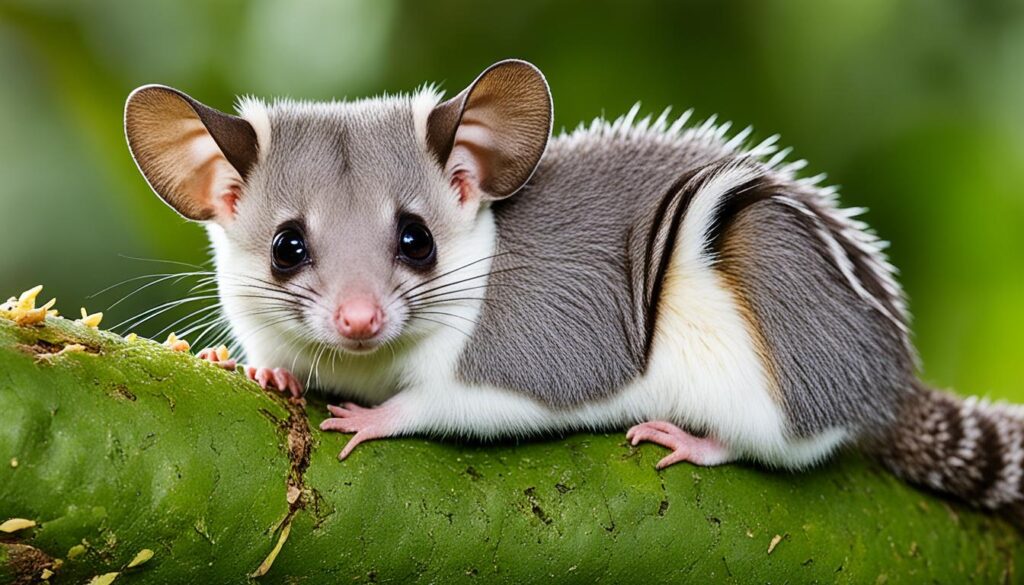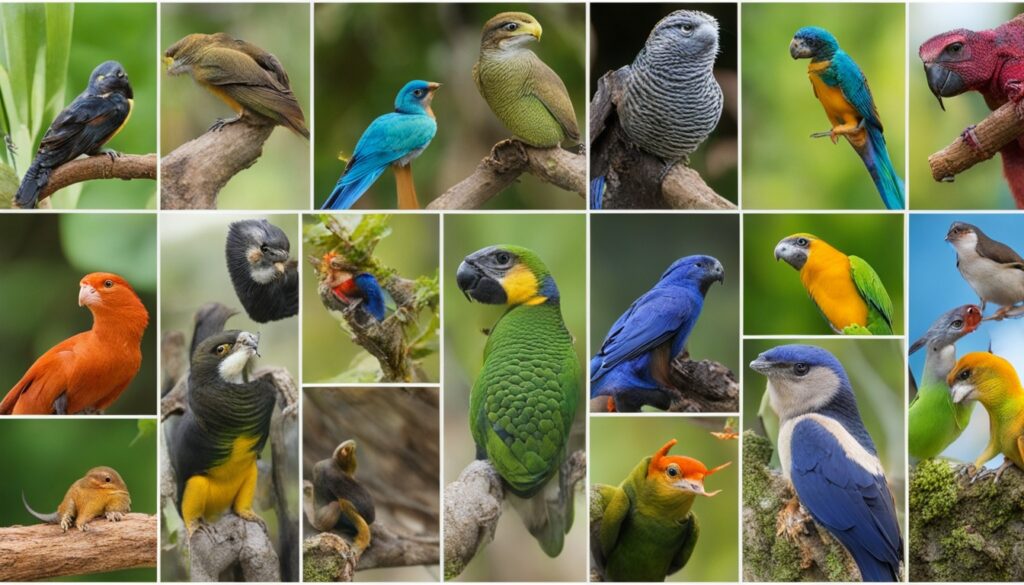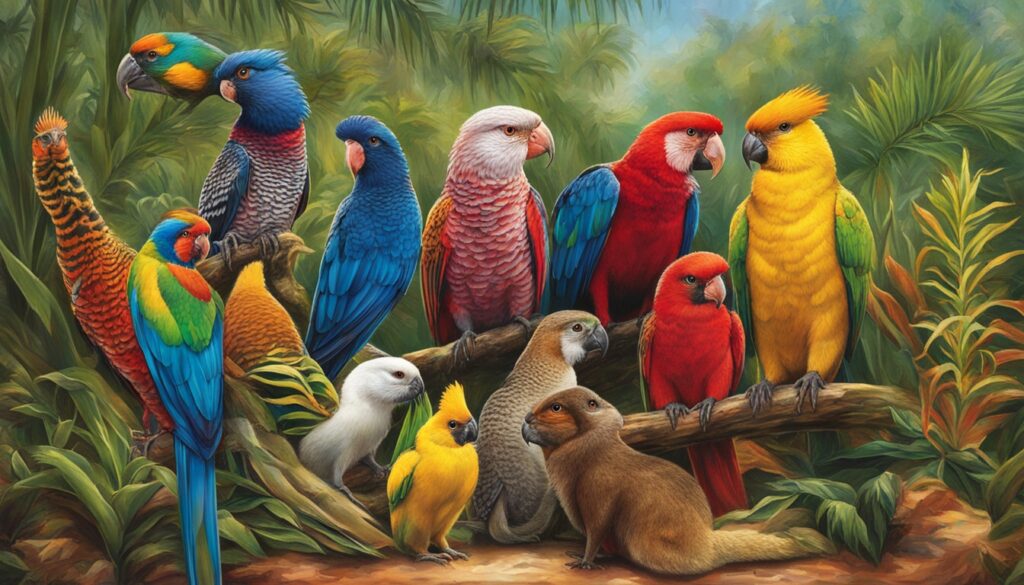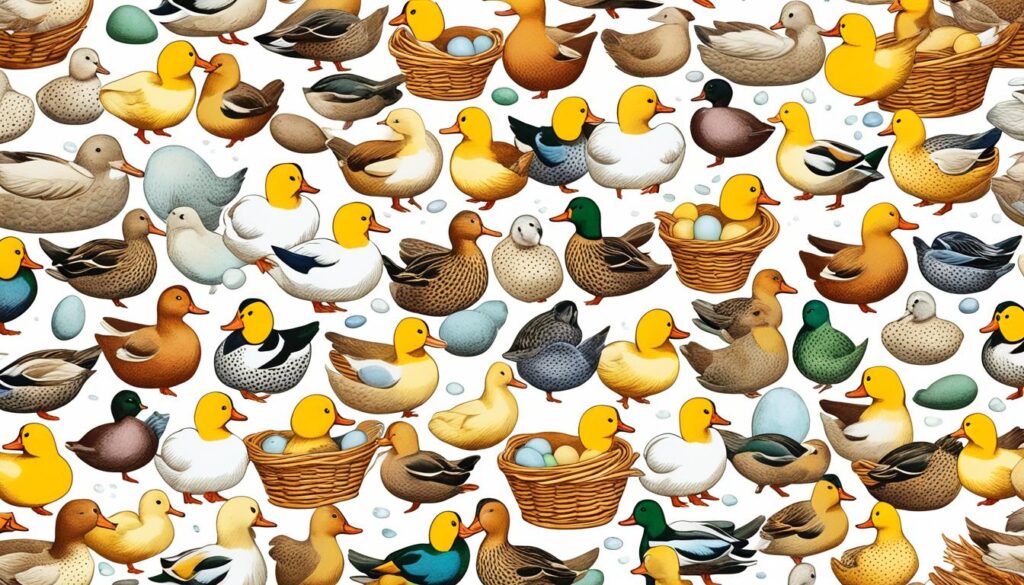Did you know that over 24 million animals are kept as pets in Australia? Dogs and cats are the top choices. But, in Western Australia, exotic pets have their own rules. It’s important to know these rules to keep your exotic pet safe and legal.
Key Takeaways
- Western Australia has a range of legally permitted exotic pets, including certain reptiles, amphibians, birds, and small mammals.
- Exotic pet ownership is regulated through a system of permits and restrictions, with some species being completely prohibited.
- Responsible exotic pet ownership requires understanding the specific habitat, care, and handling requirements for each species.
- Obtaining the necessary permits and adhering to regulations is crucial to ensure the safety of both the pet and the owner.
- Proper research and preparation are essential before acquiring an exotic pet in Western Australia.
Introduction
Western Australia is full of diverse native wildlife. The state has strict rules to protect its unique ecosystem. Some exotic pets are okay, but others are not allowed or need a special permit. It’s important for pet owners to know the legal requirements for exotic pets in WA. This helps them follow the law and take good care of their pets.
Overview of Exotic Pet Ownership in Western Australia
Owning exotic pets in Western Australia can be rewarding but challenging. The state’s rules protect its environment and prevent invasive species. Pet owners must understand complex laws to avoid breaking them.
Importance of Understanding Legal Requirements
If you don’t follow exotic pet laws in Western Australia, you could face fines or lose your pet. Knowing the laws helps pet owners make smart choices. It also ensures their pets get the right care and environment.
“Responsible pet ownership is essential when it comes to exotic animals. It’s important to educate yourself on the legal requirements and ensure you can meet the unique needs of your pet.”
Domestic Pets Legal in Western Australia
In Western Australia, many domestic pets are legal. These include dogs and cats, which are loved by many. Rabbits and horses are also allowed as pets in the region.
You don’t need special permits for these pets, but you must follow local rules. It’s important to take good care of your pets. This means giving them the right food, shelter, and attention they need.
Permitted Domestic Pets
- Dogs
- Cats
- Rabbits
- Horses
- Certain bird species
While these pets are legal in Western Australia, some breeds might have extra rules. Pet owners should check the local laws. This helps make sure their pets are safe and happy.
Knowing what pets are allowed in Western Australia helps people make good choices. Being a responsible pet owner is important. It helps keep pets and communities safe and happy.
Exotic Animals Prohibited in Western Australia
In Western Australia, some exotic pets are okay, but many are not. This includes reptiles, amphibians, and mammals like monkeys and kangaroos. The government has strict rules to protect the environment and stop harmful species from coming in.
Some of the exotic pets banned in Western Australia include:
- Reptiles and amphibians: Many reptiles and amphibians, like some snakes and lizards, are illegal exotic animals in WA. They could harm native wildlife and the environment.
- Mammals: Primates, such as monkeys and apes, and marsupials like kangaroos and koalas, are restricted exotic animals in Western Australia. They are protected by laws.
- Invertebrates: Some invertebrates, like certain spiders and insects, might be banned or need special permits in Western Australia.
The government has strict rules to keep Western Australia’s unique ecosystems safe. They have a detailed system for importing and keeping introduced animals. This system checks the risk level of each species and has strict rules for prohibited and restricted animals.
| Animal Category | Permit Requirement | Examples |
|---|---|---|
| Prohibited | Not allowed, no permits issued | Monkeys, apes, kangaroos, koalas, certain reptiles and amphibians |
| Restricted | Permit required | Some reptiles, amphibians, birds, and small mammals |
| Permitted | No permit required | Domestic pets like dogs, cats, rabbits, guinea pigs, and certain birds and fish |
By following these rules, pet owners in Western Australia can protect the state’s unique nature. They also stop harmful exotic species from coming in.
Legally Permitted Exotic Pets
Western Australia has strict rules for exotic pets. But, you can own certain reptiles, amphibians, birds, and small mammals with a permit. Owners must follow specific rules for housing, care, and handling set by the Department of Primary Industries and Regional Development (DPIRD).
Reptiles and Amphibians
In Western Australia, you can have reptiles and amphibians like snakes, lizards, turtles, and frogs. But, some, like venomous snakes, need special licenses. You must give them the right homes, temperature, and food to keep them healthy.
Birds
You can have exotic birds like parrots and cockatoos in Western Australia. These birds need big homes, special food, and careful handling. Owners must be ready to take care of their birds’ unique needs.
Small Mammals
Some exotic small mammals, like sugar gliders and hedgehogs, are allowed in Western Australia. But, there are strict rules. Owners must provide the right homes, food, and vet care for these pets.
Before getting an exotic pet, it’s important to research the laws, care, and risks. Being a responsible owner is key for the pet’s and your well-being.
Obtaining Permits for Exotic Pets
If you want to own an exotic pet in Western Australia, getting the right permits is key. You must apply to the Department of Primary Industries and Regional Development (DPIRD). They check if you can legally keep an exotic animal.
The DPIRD looks at your application and checks your property. They make sure your home is ready for the animal. The cost and renewal rules for permits depend on the pet and why you want it.
To get a permit, you’ll share info about the pet, your care skills, and your home setup. The DPIRD checks if you can give the pet a good life. They want to make sure you’re ready.
Being a responsible exotic pet owner is crucial. These pets need special care. With the right permits and care, you keep your pet healthy and follow the laws of Western Australia.
Key Requirements for Exotic Pet Permits in Western Australia
- Submit an application to the DPIRD for review and property inspection
- Provide details on the animal, your experience, and the accommodations you’ve prepared
- Pay the applicable permit fees, which vary based on the species and purpose of ownership
- Renew the permit as required, ensuring continuous compliance with state regulations
- Ensure the exotic pet’s enclosure and care meet the DPIRD’s strict standards
Getting an exotic pet in Western Australia means following a detailed licensing process. But, with the right permits and care, you can enjoy these amazing pets. You’ll also follow the state’s wildlife laws.
what exotic pets are legal in western australia
Owning exotic pets in Western Australia means knowing the laws. The Western Australian Organism List (WAOL) tells us what pets are okay. It’s kept by the Department of Primary Industries and Regional Development (DPIRD).
The WAOL helps pet owners know which animals are allowed, need a special permit, or are banned. It has lots of info on different species. This keeps you legal when you get an exotic pet.
Some exotic pets like reptiles, amphibians, and small mammals are okay in Western Australia. But, they come with rules and permits. Animals like monkeys, lions, and tigers need special licenses for shows or conservation, not as pets.
Being a responsible exotic pet owner means doing your homework and following the laws. Use the WAOL to learn about your pet’s needs. This way, you can take good care of your pet legally and safely.
| Exotic Pet Category | Legal Status in Western Australia |
|---|---|
| Reptiles and Amphibians | Permitted with appropriate licenses and permits |
| Birds | Permitted with appropriate licenses and permits |
| Small Mammals | Permitted with appropriate licenses and permits |
| Large Mammals (e.g., monkeys, lions, tigers) | Only permitted for licensed individuals and exhibition or conservation purposes |
For more info on legal exotic pets in Western Australia, check the WAOL. Keep up with the latest rules and requirements.

“Responsible exotic pet ownership requires careful research, preparation, and adherence to the relevant laws and regulations.”
Responsible Exotic Pet Ownership
Owning an exotic pet in Western Australia means knowing what the animal needs. You must make sure the enclosure and habitat are right for the pet. This includes the right space, temperature, humidity, and more. Also, learning how to care for and handle the pet is key for their health and your safety.
Enclosure and Habitat Requirements
Exotic pets like reptiles, amphibians, and small mammals need special homes. Their enclosures must have the right temperature, humidity, and bedding to feel like their natural home. If their needs aren’t met, they can get stressed, sick, or even die.
Proper Care and Handling
Taking care of an exotic pet takes special knowledge and effort. You need to know the right food to feed them and how much. Also, handling them safely is important for both you and the pet.
Being a responsible exotic pet owner in Western Australia means you’re committed to the pet’s needs. By giving them the right home, care, and attention, you help keep them healthy. This also keeps you and others safe.
Risks and Considerations
Exotic pets can be fascinating, but they come with big risks in Western Australia. Owning these pets means facing dangers to the environment and wildlife. Some exotic animals, like venomous snakes, can be harmful to people if not kept safe.
There are more risks to owning exotic pets in Western Australia than just safety. A 2014 report showed a 72% death rate in exotic pets, due to many issues like cannibalism and dehydration. This shows the big welfare problems with the exotic pet trade and the suffering of these animals.
Also, exotic pets in Western Australia can affect more than just the animals. A 2023 report found many exotic species for sale in Australia, including some that shouldn’t be there. This shows a need to manage the risks of the exotic pet trade better.
| Consideration | Impact |
|---|---|
| Environmental Disruption | Escaped or released exotic animals can disrupt local ecosystems, outcompeting native species and causing irreversible damage. |
| Public Health and Safety | Certain exotic species, such as venomous snakes, pose a significant threat to human health and safety if not properly contained. |
| Animal Welfare | The exotic pet trade has been associated with high mortality rates and poor living conditions for the animals involved. |
| Biosecurity Risks | The trade in non-native and prohibited species can introduce invasive species and diseases, threatening the local environment. |
If you’re thinking about getting an exotic pet in Western Australia, think about the risks. Being a responsible pet owner and supporting wildlife conservation is key. It helps keep humans, animals, and nature safe.

“The guidelines for the Import, Movement, and Keeping of Exotic Vertebrates in Australia were produced by the Vertebrate Pests Committee (VPC) and updated previous guidelines from 1991. The guidelines focus on developing strategies to prevent the establishment of new species that pose significant risks to the environment, primary production, or public safety.”
Conclusion
Owning an exotic pet in Western Australia is rewarding but comes with legal rules and a need for responsible care. Knowing the allowed species, getting the right permits, and giving proper care and home is key. This way, you can enjoy the special bond with an exotic pet while keeping everyone safe and the environment protected.
The conclusion on legal exotic pets in western australia is clear. While many exotic animals are allowed, following the rules is vital. It ensures your pet’s health and the safety of our environment. The summary of exotic pet ownership in wa shows the need to research well before getting an exotic pet.
The key takeaways on exotic pets in western australia are simple. Be an informed and caring pet owner. Put the animal’s needs first and follow the laws. This helps exotic pets and nature live together peacefully.
Being informed and responsible makes owning an exotic pet rewarding for you and your pet. Always think about your pet’s well-being and the protection of Western Australia’s nature. This should guide your choices and actions as an exotic pet owner.
FAQ
What exotic pets are legal to own in Western Australia?
In Western Australia, owning certain reptiles, amphibians, birds, and small mammals is allowed with the right permits. The Western Australian Organism List (WAOL) lists the exotic species you can legally keep.
What is the process for obtaining a permit to own an exotic pet in Western Australia?
To get a permit for an exotic pet in Western Australia, you must apply to the Department of Primary Industries and Regional Development (DPIRD). Your property will be inspected to make sure it’s suitable for the pet. The cost and renewal details of the permit depend on the pet you want and why you want it.
What domestic pets are legally allowed in Western Australia?
In Western Australia, you can keep pets like dogs, cats, rabbits, horses, and some birds without needing special permits or licenses.
Which exotic animals are prohibited or tightly restricted in Western Australia?
Western Australia has strict rules to protect its environment. Many exotic animals are banned or need a special permit. This includes reptiles, amphibians, and some mammals like monkeys, kangaroos, and koalas.
What are the key considerations for responsible exotic pet ownership in Western Australia?
Owning an exotic pet in Western Australia means understanding their specific needs. This includes the right enclosure, habitat, care, and handling. Owners must also know the risks and how their pets might affect the environment.



